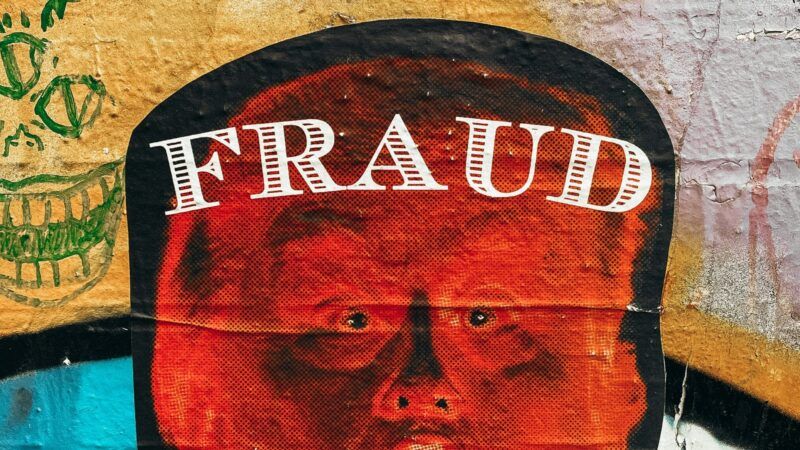Voter Fraud Is Rare, but Many Americans Believe Their Votes Won't Be Counted Correctly
Only one in four Republican voters are very confident their ballots will be counted correctly, and Trump voters are far less likely to believe the election will be decided fairly.

It was an explosive claim of possible voter fraud—exactly the sort of thing that former President Donald Trump and conservative pundits have spent years warning Republican voters to fear: more than 50 voters registered to a single address in Erie, Pennsylvania.
"NO ONE lives there," claimed Cliff Maloney, a Republican canvasser who discovered the alleged fraud, in a post on X that went viral and has racked up over 2.8 million views. "We will not let the Dems count on illegal votes," he added.
Just one problem: A lot of people do live there. The address in question is a monastery belonging to the Benedictine Sisters of Erie, a group of "nearly 70" nuns who have been based in Erie since the 1850s. The names of the nuns living there match many of those listed as "illegal votes" by Maloney. In a statement responding to Maloney's post, the group called the claim "blatantly false" and encouraged everyone to be more careful about what they see and read before the election.
"A free republic depends on free and fair elections," Sister Stephanie Schmidt said in that statement. "It depends equally on a discerning and conscientious citizenry who do not unquestioningly accept the word of anyone who has a social media platform."
Good advice. Actual, proven instances of mass voter fraud on the scale necessary to shift the outcome of an election—even in a super competitive state like Pennsylvania—are virtually nonexistent, despite seemingly nonstop claims to the contrary.
Voter fraud is a fact of life in any democracy, but it is usually the result of carelessness on the part of single voters or ballot-counters, and there are ample processes in place to identify and correct those mistakes when they occur. After the 2020 election, the Associated Press found 475 instances of possible voter fraud in six states where a combined 25 million ballots were cast. High-profile claims of voter fraud in Arizona, Georgia, and everywhere Rudy Giuliani looked evaporated upon closer inspection.
At a certain point, the lack of evidence for widespread voter fraud ought to make Americans more skeptical of these claims. Instead, it looks like the opposite might be happening.
Just 39 percent of respondents to a recent University of Massachusetts Amherst poll said they were "very confident" that their voters would be counted accurately in this year's election. That includes just 26 percent of Republicans and 16 percent of independents. Even when including those who say they are "somewhat confident" that votes will be tabulated correctly, only about two-thirds of the country have faith that the outcome of the election will reflect the votes cast.
A similar partisan divide emerged in a recent Pew Research Center survey that asked whether "it will be clear who won the election" after all the votes were counted. Just 58 percent of Trump voters are "very" or "somewhat" confident that those final counts will be clear, compared to 81 percent of Vice President Kamala Harris voters who are prepared to trust the process.
This is a potentially worrying problem since a lot of the legitimacy of any democratic system is tied up in the public's perception of the electoral system. Even if voter fraud or other electoral shenanigans are exceedingly rare, the belief that they are rampant undermines that essential trust—upon which the entire edifice of the "of the people, by the people, for the people" government is built.
A cynic might believe that Republican partisans—from Maloney to Tucker Carlson to Trump himself—are deliberately spreading lies and exaggerating claims of voter fraud to sow doubt that could metastasize into full-blown chaos later this month.
But, like with those rare instances of actual voter fraud, it's always better to assume incompetence (or at least self-serving willful ignorance) rather than malice. Probably more important is the point made by Sister Schmidt: Don't believe everything you see on social media.


Show Comments (156)